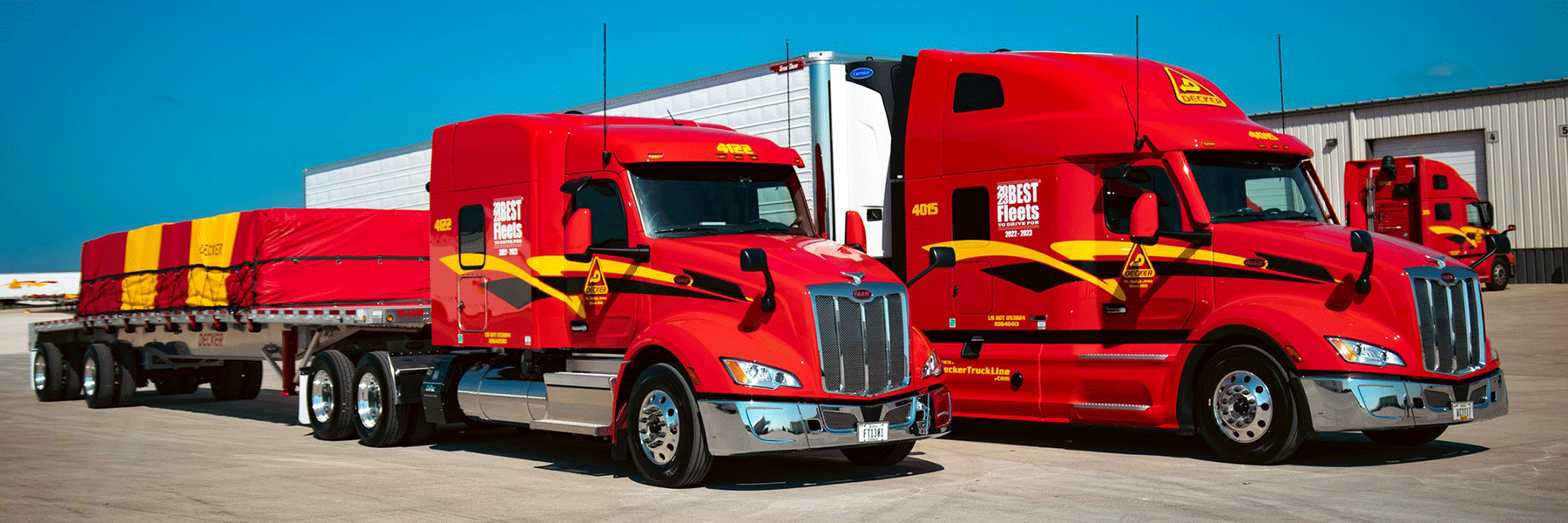Learn about the key responsibilities, skills, requirements, skills, and duties of a fleet manager and what you can expect in the role.
One of the main responsibilities of a truck driver is to make sure items are delivered on time and safely. But they aren’t the only ones who bear the weight of that responsibility. Fleet managers may be behind the scenes, but they put in a lot of work to make it happen. In short, a fleet manager is a logistics specialist or expert in the transportation industry. Fleet managers are responsible for managing every large and small detail of their team of drivers and the company’s vehicles.
On top of their primary duties of buying and maintaining delivery trucks, fleet managers have many other responsibilities. Below, you’ll find five of their countless duties and some qualities that make for good fleet managers.
Continue reading to learn more.
5 Duties of a Fleet Manager
The duties of a fleet manager vary from one to the next, but, generally speaking, they are tasked with the following duties:
Correctly Record Fleet Information — One of the biggest things a fleet manager is in charge of is recording and maintaining accurate data regarding all of the details of a fleet. For example, a fleet manager will keep a detailed history of every vehicle in their fleet, including information such as the last oil change for each truck, etc. Managers must be extremely detail-oriented and diligent in their record keeping.
Analyze Recorded Data — Fleet managers must examine and analyze recorded information. They work to predict any possible problem from this data, provide reroutes, and change travel schedules whenever necessary. Thanks to this help from their managers, less time is wasted because drivers can take a route with fewer hazards and less traffic.
Establish Situational Practices and Procedures for Possible Issues — An unfortunate reality that drivers and fleet managers face is that there are countless problems that can prevent goods and services from being delivered on time. Managers must have a game plan in place for when these issues arise.
For example, managers will have a detailed plan on the next steps for when issues like truck breakdowns, traffic, failed inspection, accidents, and other incidents that could occur while a truck is en route.
Select the Best Vehicles — Another typical job of fleet managers is choosing the right vehicles for your team and finding the best way to finance them. After the fleet vehicles have reached maximum use and are ready to be offloaded, a fleet manager will know the best price point and serve as a negotiator.
Manages Vehicle Maintenance Schedules — Fleet managers are in charge of truck maintenance. They are responsible for making sure the vehicles are in great shape to perform necessary functions. They are also responsible for making sure fleet vehicles can successfully deliver services and products at the lowest cost possible.
Managers must ensure their trucks are properly maintained, set up maintenance schedules, and make sure vehicle maintenance is completed by a service department or an external auto-service business. Additionally, managers may need to find an auto service center to supply spare parts when necessary.
More Responsibilities and Duties of a Fleet Manager
- Recruit high-quality drivers that are responsible and reliable.
- Assign trucks to drivers.
- Handle drivers’ schedules.
- Create, manage, and implement policies for their fleet.
- Manage accident reports.
- Use monitoring devices for their drivers’ driving techniques and patterns, such as excessive braking or speeding.
- Have a thorough understanding of the business and budget accordingly.
- Manage team and ensure they adhere to their strict schedules.
- Handle escalated customer service issues.
- Use GPS systems to locate trucks.
- Find ways to increase profits and reduce costs.
- Comply with all regulations and laws set by the U.S. Department of Transportation.
- Develop strategies for improving fuel efficiency.
Standard Qualities and Skills of a Good Fleet Manager
Fleet managers must have excellent operational experience and skills to handle their primary tasks, which can include:
- Have related work experience in the transportation industry, such as two years of driving as a delivery driver and at least two years of past experience in a logistics role, etc.
- Have a degree in accounting or logistics or equivalent experience.
- Be good at solving problems in a timely manner.
- Have good problem-solving skills and an analytical mindset.
- Possess exceptional interpersonal skills for both internal and external relationships.
- Be detail-oriented and have fantastic written and verbal skills.
- Have excellent organizational skills and analytical abilities.
- Be compassionate, understanding, and empathetic towards their fleet.
- Possess business management skills.
- Competent in computer applications, software, and programs.
- Prioritize the safety, health, and wellness of their drivers.
Want to Be an Awesome Fleet Manager? Equip Your Trucks with EpicVue!
While it’s not on the mandatory list of duties of a fleet manager, equipping your fleet with EpicVue is a great way to let your team know you care!
EpicVue specializes in outfitting trucks with premium in-cab satellite televisions. We offer your crew members a bit of home and familiarity on the road. It allows them to relax and watch TV in the comfort of their own trucks.
This gesture will show your team appreciation, and in return, many managers receive loyalty, and commitment, making these benefits well worth the small investment! Whether you are a part of a fleet or are an owner-operator, EpicVue is a fantastic addition to your truck.
EpicVue allows you to kick back, relax, and catch up on the latest games, favorite shows, or news on the road. The comforts of home are hard to come by on the road, but you can stay connected and get a taste of home, regardless of where you are, with our satellite TV.
Watching TV during your time away from loved ones can help offset the overwhelming feelings of isolation and loneliness. Not only that, but it is also a great way for drivers to relax during mandatory rest and recovery time. With over 180 premium challenges, truck drivers are sure to find something to watch, regardless of their preferences.
If you want to reduce the expensive and tedious recruitment and retention cycle, contact our team to learn more today!



